JFK: The Bay of Pigs Disaster
How and why did Kennedy fall to failure in the Cuban catastrophe?
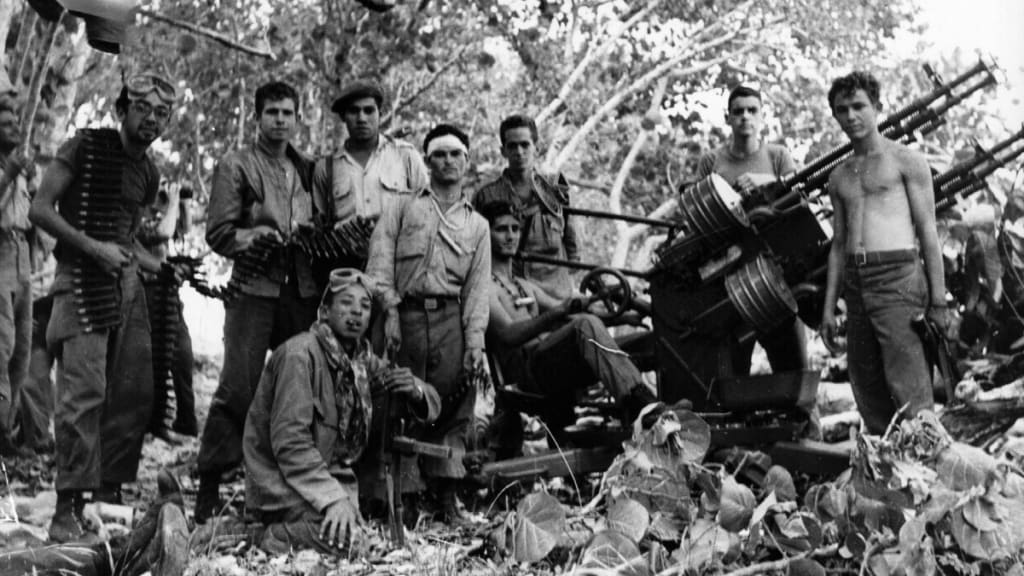
Four months, into John. F. Kennedy's Presidency would see total disaster and destruction fall upon him, his government, country and Cuba as a whole.
His Presidential campaign saw him vouch to bring the hammer down on communism and prevent it's spread throughout the world. But after his failure with Cuba-- some questioned his ability to carry out the very words that gained him the mantle.
The world was watching him. All eyes were upon this man to tackle this 'disease' that was spreading like wildfire. Many, had their speculations as to his capability of being President (as he was the youngest President to be inaugurated) and labelled him as weak and too lenient to carry the country on his shoulders...let alone the world!
Nikita Khrushchev (USSR leader), touched upon JFK's calibre at the Vienna Summit meeting (June 1961), to which he tarnished him as "too weak". As to that, a Soviet official branded him as "very inexperienced" and "immature", words said after the Bay of Pigs Invasion.
So, was this perhaps Kennedy's greatest failure, during his brief time as President? And to what extent did this inflict upon his character--as the world stood still to watch Kennedy's fall.
The Cuban Revolution (1959)
To begin with, Cuba and America were allies and neighbours-- with a neutral and stable relationship. With Cuba being such a close neighbour, only 90 miles separated the two countries-- it was vital to have an alliance with them. America received major exports from Cuba such as sugar, tobacco and pharmaceuticals.
President Eisenhower and Fulgencio Batista were leaders of America and Cuba during 1959. The US government were very supportive of the Batista regime and often provided him with aid to fuel his dictatorship.
The End of Batista's Regime
Batista's Rule was still in motion, and he continued to unleash devastation upon Cuba.
Until Fidel Castro, with right-hand man: Che Guevara and his all-powerful revolutionary army succeeded in overthrowing Fulgencio Batista. A man whom Castro accused of being a corrupt dictator, and a puppet for the USA. The US supported Batista's reign of hell, standing beside him as he slaughtered 20,000 Cubans in seven years, tarnishing everything that was once democratic about the Cuban State. Fulgencio supported US interest and Fidel despised the idea of Cuba being subjected to another country, under its control as if the US were the 'Big Brother'. So, an intervention was needed to put a stop to such dictatorship, to free the Cuban people from the manacles of the USA. And Castro had to be their 'saviour'.
Castro seized power in Havana, spreading the revolution throughout Cuba. Stamping on any prospects for Cuba that America had. Once, Havana was crushed by the revolutionists--Fulgencio fled the country in exile, abandoning his position as leader. Allowing Castro to form his revolution-gained government and restore 'power to the people.'
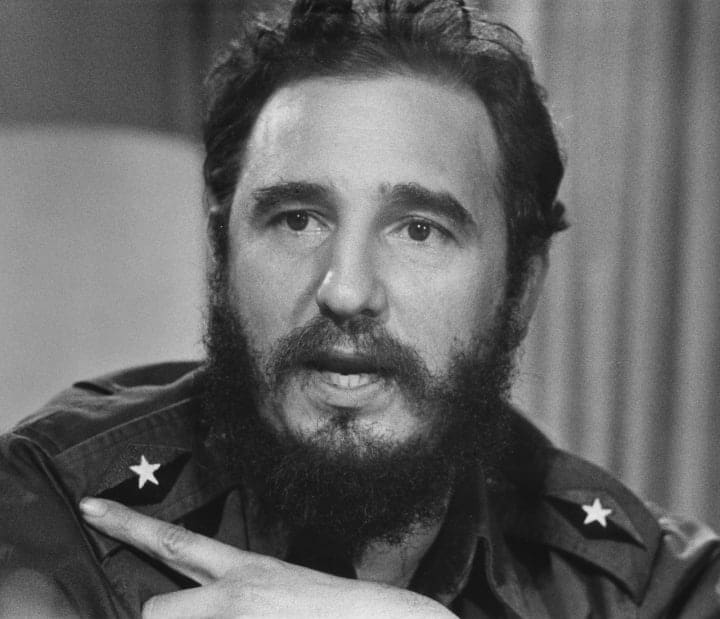
Now, Castro was the leader of Cuba and the USA was growing more uncertain of the trajectory that Cuba would take. America's fears were about to become realistic and present in the many conundrums among their government. Their woes were about to come true when Fidel Castro took the liberty of re-establishing and assigning Cuba as a communist country.
As Cuba was now a communist country it would adhere to the Communist rule. All facilities in Cuba belonged to the state, the people of Cuba could not set up any private businesses nor any agriculture companies. Any profit would belong to the government and in realism be distributed to the people fairly and equally. So, there would not be a divide in society between the affluent and the disadvantaged. Equivocally, America did not value any of the communistic rules and therefore opposed this ideology as expected.
The USA accepted that Fidel Castro was now the leader but just not the notion of how he decided to rule Cuba. America saw Communism as an economic threat in its sphere of influence, and once Cuba had been within that influence. Everything was neutral until Castro began his reformations and nationalised any foreign-owned businesses that settled in Cuba. And as American businesses equated to the majority of foreign companies--it hit the US hard. No form of compensation was offered to the US, which led to the trade embargo and the termination of diplomatic relations.
TRADE EMBARGO
4th September 1961: Kennedy launched the trade embargo scheme and began to cut the ties of diplomatic relations with Cuba. The US stopped selling any military arms and trading Cuban sugar. America knew that the sugar exports made up 80% of Cuba's exports, damaging the Cuban economy heavily. So, having no other alternative solution--Castro turned to the Soviet Union for help and asked them to trade for sugar exports instead. And Khrushchev (leader of the Soviet Union), happily agreed to the trading deal. This led to increased relations between the USSR and Cuba--as their communist relations began to grow. Not only would this be the beginning of their relationship, but the establishment and development of a communist pact.
The Bay of Pigs Invasion (1961)
America had lost Cuba as an ally to communism and now their once US-influenced country began to trade with the USSR. This stance made America see Cuba as a threat to US interests. The US wanted to end Castro's communist regime but did not want to be publicly nor directly involved in the matter. So, they took a different approach in an attempt to overthrow Fidel Castro and his revolutionary government.
The American government developed a plot to overthrow Castro: Cuban-exiles who had fled to America from Cuba were to be trained by the US military and CIA. The US government recruited over 1000 exiles into the top-secret "Brigade-2506". The CIA-sponsored brigade's motto was "Overthrow Fidel Castro." Which was of course the primary objective.
The exiles would begin and attempt to start a revolution--that made it appear like Cuba's own people were rebelling against Castro. The plan was instigated by the CIA, under the command of President Eisenhower.
When Kennedy became his successor he found out about the invasion. Eisenhower's invasion program fell upon Kennedy's lap. And in what he believed to be for the best interests of America, he gave permission for it to go ahead. He gave his permission to a failure. JFK's advisors warned him that the invasion could have a little chance of success.
But JFK stands wholly beside the strict Kennedy rule of never relinquishing.
Nonetheless, on April 17th 1961: 1,400 Cuban exiles who were supplied with US military weapons and aid, made their way at the Bay of Pigs shore in Cuba. The expectation was that the exiles' invasion would lead to the Cuban people joining the revolution and revolting against Fidel Castro. Which would then lead to the assassination of Castro and his communist government. But, their expectation was completely wrong-- the people of Cuba worshipped Castro and had no reason to join in with the revolt. Bit by bit the CIA-planned invasion fell apart and the exiles were confronted by Castro's revolutionary army, who did not hesitate to strike back. The Cuban army destroyed and sank the exile's ships (courtesy of the USA).
The plan was demolished.
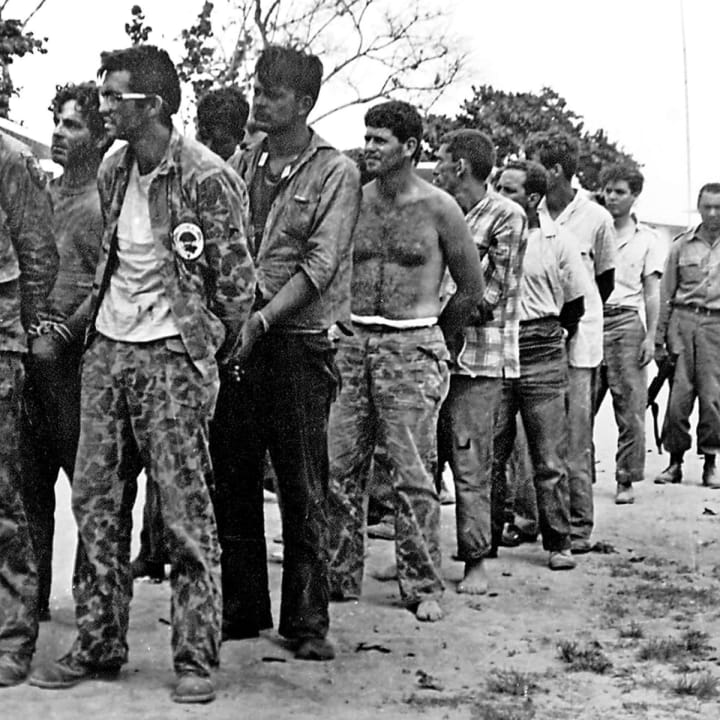
The American government sat back and watched the demolition of their ultimate invasion. Their predictions were wrong, there was no uprise nor was Castro overthrown in any way. The US could not intervene in the situation, so they allowed the invasion to take what every course it would take. The aftermath of 'the great plan' lead to more than 100 exiles slaughtered and 1,100 of them held captive and interrogated by the Cuban government. Kennedy looked upon the picture he had painted, and he knew it would cost him greatly.
For the next twenty months, Castro would hold the Brigade 2506 exiles captive. And then he would release them for a price of fifty million dollars, which made up food resources and medical aid for Cuba.
The 'Perfect Failure'
America's failure had a heavy price attached to it, the US government has completely denied any involvement in the matter. But, their denial of involvement was questioned. When, reporters capturing the disaster, with a keen eye saw that the aircraft guns that the exiles had, looked too familiar and were not the craftmanship of Cuba. But, in fact, a product and source of the USA. Therefore, reinforcing the notion that America was involved. The US faced a great depth of embarrassment and criticism for their failed attempt, it backfired and made the government look like fools.
For, Castro America's failed attempt helped to fuel his power in Cuba and strengthened the link between Castro and Khrushchev (Cuba and the Soviet Union). Leading to Castro requesting military aid from the Soviets, which then developed into the aiding of missile weapons. Triggering the beginning of the Cuban Missile Crisis (1962), when a US U-2 Spy Plane discovered a Soviet missile base on Cuban land. Posing a greater threat to the USA's western hemisphere.
Guerrilla-warrior Che 'Ernesto' Guevara had the audacity of personally thanking the President for the invasion. He spoke with the US Adviser of Kennedy, Richard Goodwin-- whilst they were discussing a potential settlement between the two parties.
As they were about to finish their convalescence, Goodwin recalls the ending of his and Guevara's conversation:
"[Che Guevara] went on to say that he wanted to thank us very much for the invasion—that it had been a great political victory for them—enabled them to consolidate—and transformed them from an aggrieved little country to an equal.” - Richard Goodwin
Without realising it, when Kennedy gave his Presidential confirmation to the invasion, that he handed Cuba Victory with his own hands.
Equivocally, Kennedy's actions were condemned by America and all countries internationally. Latin America was angered by the US-instigated attack and reprimanded the American government for their attempt of assassinating Castro-- who to them was portrayed as a God. No matter how hard Kennedy tried to justify his actions or to redeem himself, he still carried the failure on his shoulders.
The disaster struck Kennedy to the core, it made him question his position as President. It was sourced that a White House Adviser glimpsed a broken John F Kennedy crying, whilst his wife Jackie Kennedy cradled him in her arms.
There and then, John Kennedy broke a Kennedy mandate..."Kennedys don't cry". One of many Kennedy rules, Joe Kennedy Sr engraved into his nine children's minds.
JFK's father (Joe Kennedy Sr) was a man who he looked up to, he was his hero, a man who he aspired to be. Kennedy was his protégé and he had hoped to seek some strengthening advice from.
But, at this moment in time, JFK did not receive a fatherly response, but he faced the stern, harsh side of his father. Who offered him nothing but sarcasm and disappointing words:
“Oh hell,” Joseph Kennedy Sr said JFK (his son).
“if that’s the way you feel, give the job to Lyndon [Vice President Johnson].”
Joe Kennedy Sr wasn't half wrong, his son would leave the mantle to Lyndon B. Johnson, but just not in the way he imagined.
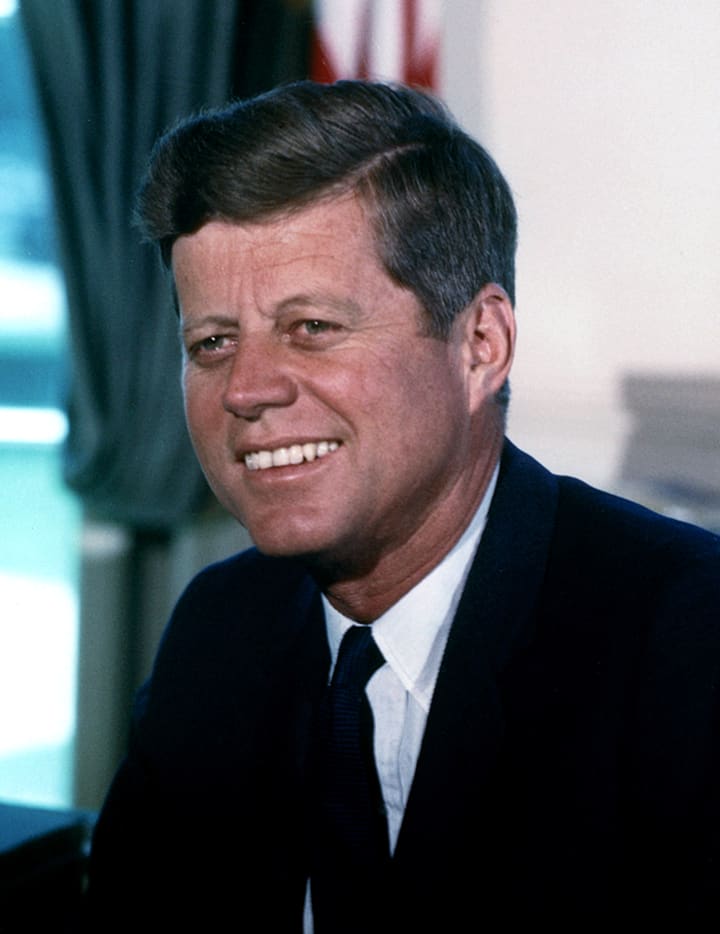
President John F Kennedy also confided in his political adviser and close friend, Clark Clifford, to which he said to him with honesty:
“Let me tell you something,”
“I have had two full days of hell – I haven’t slept – this has been the most excruciating period of my life. I doubt my presidency could survive another catastrophe like that.” - John F Kennedy
The words of Kennedy echoed in the book 'The Cuban Missile Crisis,' written by M. White.
The young president was now labelled as weak and an easy target, a young man who some believed neglected his responsibility and underestimated the circumstances. If it was one thing the Kennedys did not want, it was to be deemed as weak and vulnerable.
Kennedy was a promising President who was evidently an effective and important leader for America. He brought about change and inspiration among the country, uniting Americans with his presidential grace, and capturing them with his blooming and exuberant youthfulness.
He won America's vote as President, (against Richard Nixon) with his Irish charm, signature Kennedy smile and attributes. Undoubtedly, he succeeded as President in many different avenues of his presidency-- the Bay of Pigs Invasion was not one of them.
Because the outcome and trail of the Bay of Pigs never truly let go of John Kennedy.
The shadow of the 'perfect failure' would follow Kennedy until the very end.
Author: P.I Williams
Copyright © 2021 P.I Williams
This is original work created by the name stated and must not be used for the intention of gaining profit from any distribution of the elements the work contains. But used for the sole purpose of non-commercial research, private study or personal use. Limited extracts may be used for non-commercial activities only, with referencing to the sources obtained from this work. The copyright prohibits any persons from displaying this work as their own personal property.
Some elements of this article have been extracted from an outside source, for validating information. The outside sources have been referenced such as books, articles, people and images.
About the Creator
P.I Williams
A History fanatic and writer, touching upon certain events, people and ages in History.
Follow my page for History updates!
Enjoyed the story? Support the Creator.
Subscribe for free to receive all their stories in your feed. You could also pledge your support or give them a one-off tip, letting them know you appreciate their work.

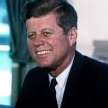
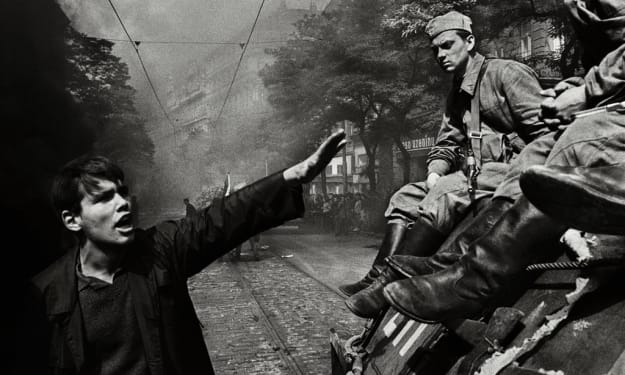
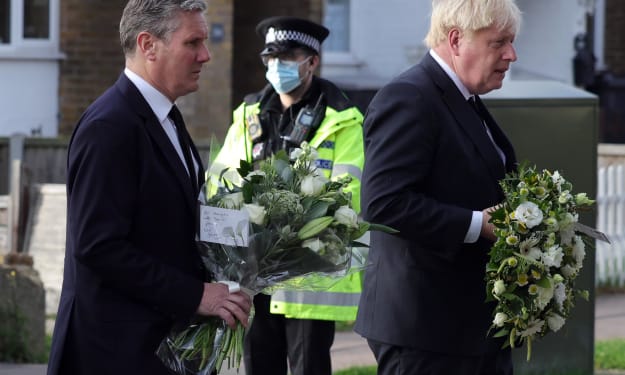
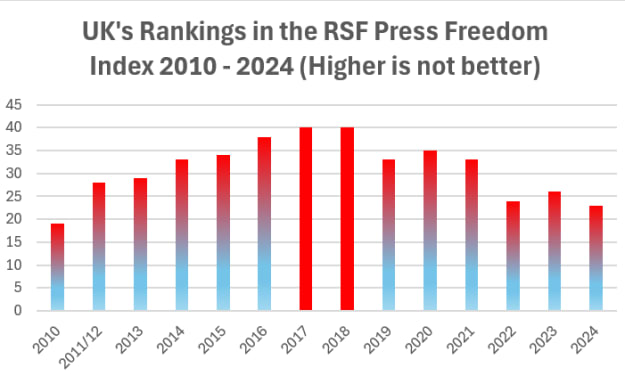

Comments
There are no comments for this story
Be the first to respond and start the conversation.